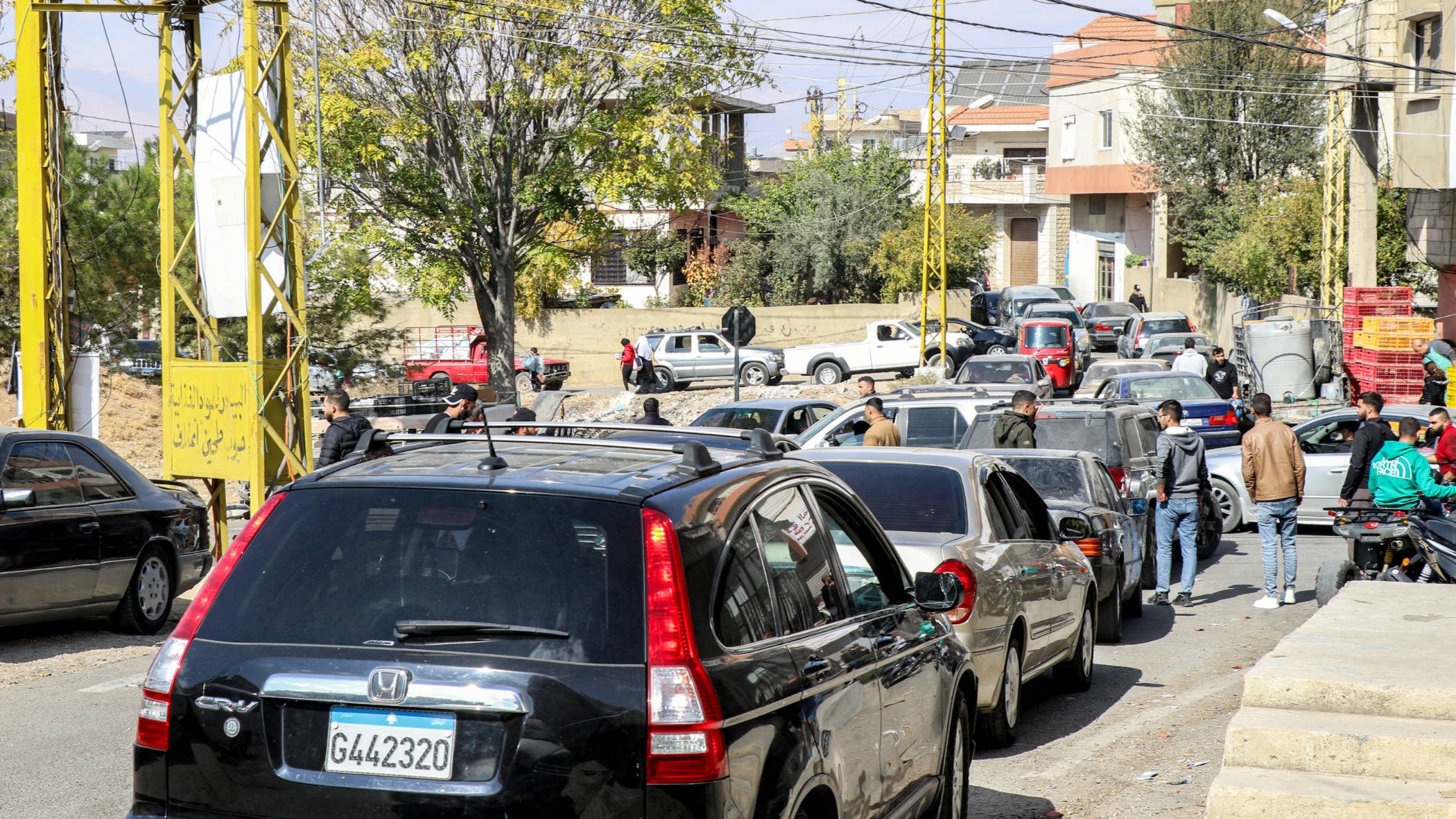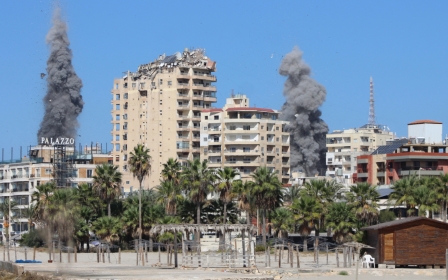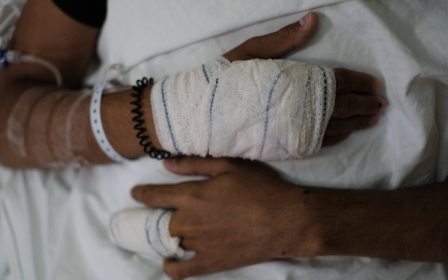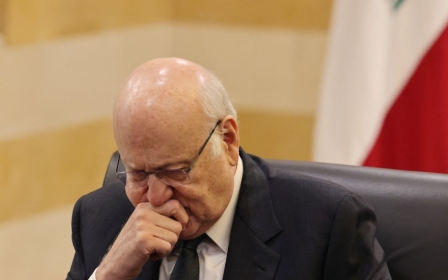Israel bombs Lebanon's historic Baalbek after ordering entire city to leave
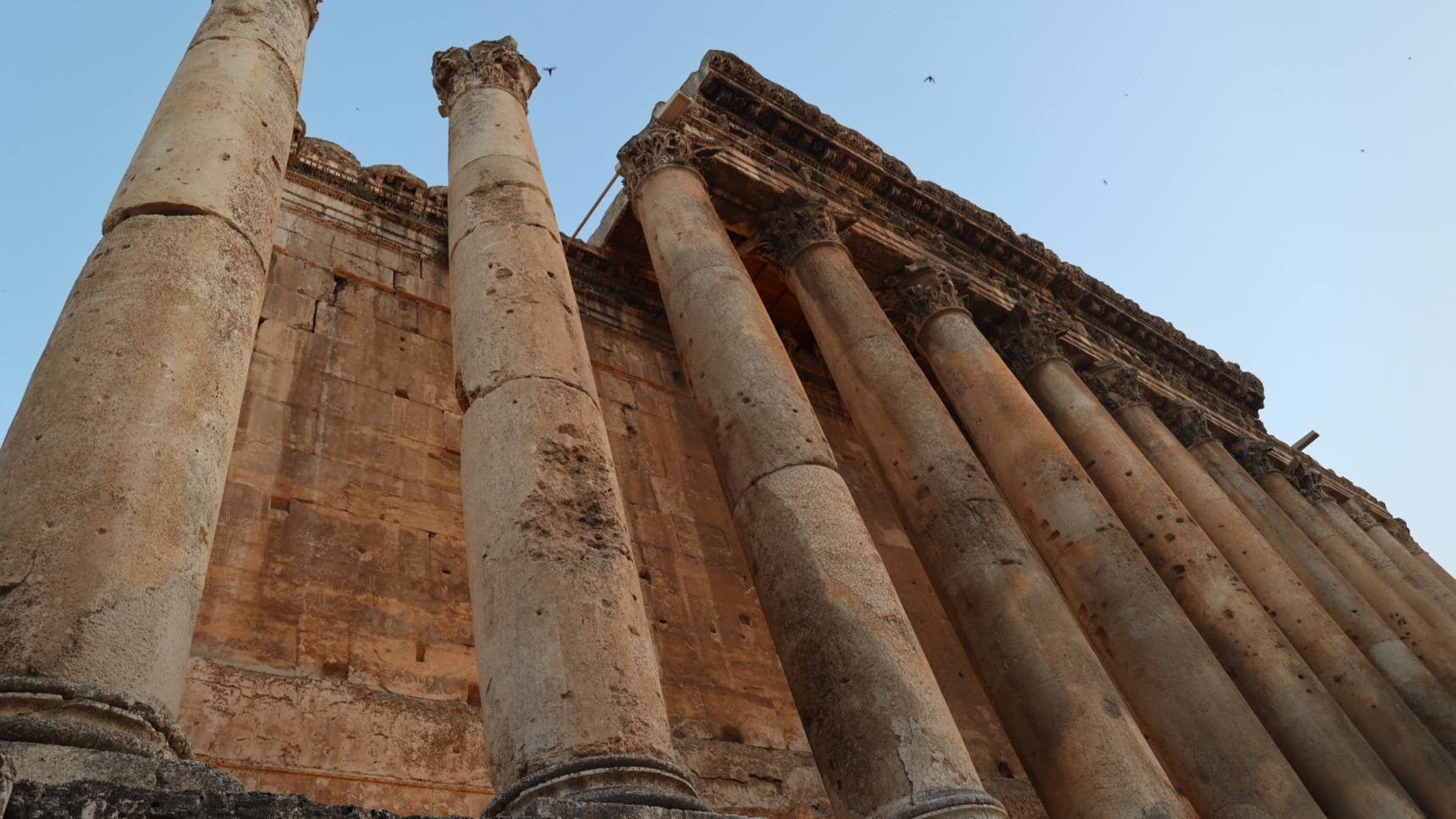
The Israeli military on Wednesday started heavily bombarding the ancient eastern Lebanon city of Baalbek, hours after it ordered all residents to leave the area.
This is the first time the residents of a Lebanese city in its entirety have been ordered to leave, after similar expulsion orders on large swathes of Tyre, also known as Sour, in southern Lebanon and parts of Beirut’s southern suburbs.
The order also covers the area where Baalbek’s famed Roman ruins, which include one of the world’s largest standing Roman temples, are located. Around 80,000 people live in the Baalbek area.
Streets around the city were jammed with cars as residents desperately sought safer areas, though Israel has previously carried out strikes on displacement shelters and has shut down several land crossings to neighbouring Syria.
Civil defence vehicles drove around the city urging everyone to leave immediately over loudspeaker, according to AFP.
New MEE newsletter: Jerusalem Dispatch
Sign up to get the latest insights and analysis on Israel-Palestine, alongside Turkey Unpacked and other MEE newsletters
Israel says it is targeting Hezbollah activity in the city, without providing evidence. Baalbek is home to many Hezbollah voters.
The warnings come after intense Israeli attacks on the city and its surrounding area on Monday night, killing over 60 people, the largest single-day death toll in the area since hostilities between Israel and Hezbollah began on 8 October 2023.
Israel's attacks on Lebanon drastically increased last month when it launched a widespread bombing campaign across the country followed by a ground invasion. At least 2,792 people have been killed in Israeli attacks in Lebanon.
Baalbek is the second city with a Unesco World Heritage Site to be subject to heavy Israeli attacks after days of devastating bombing on Sour, one of the oldest continuously inhabited cities in the world.
Baalbek's mayor, Bachir Khodr, asked residents to either head to Arsal in the northeast or to Lebanon’s North governorate, where many residents have gone for shelter over the course of the war.
Speaking to Al Araby TV, Khodr said he hopes Israel "will not target the ancient Roman citadel of Baalbek”, which includes a spectacular walled compound, temples and other significan ancient ruins.
But he warned residents against seeking shelter there “because it is not safe”.
According to the International Organisation for Migration, 44,000 people were sheltering in Baalbek after being displaced by Israeli attacks elsewhere, and another 70,000 had left the city already for safer areas.
'We will not beg for a ceasefire'
Israel's bombing of Baalbek started as Naim Qassem's first pre-recorded speech as Hezbollah secretary general was being aired on television.
In it, the newly appointed leader said that "if the Israelis decide to stop the aggression, we say that we accept, but according to the conditions that we see as suitable".
"We will not beg for a cease fire as we will continue [fighting]... no matter how long it takes," he said.
Qassem, a cleric and founding member of Hezbollah, was appointed to the role of secretary general on Tuesday, weeks after longtime leader Hassan Nasrallah was killed in an Israeli strike on Beirut's southern suburbs.
He said that while Hezbollah did not wish for war with Israel, it launched its attack on Israel on 8 October 2023 as both a "duty" to Gaza and a "preemptive defence" to what he called longtime Israeli plans for war with Lebanon.
Addressing the string of Israeli assassinations of the Lebanese group's top leadership, along with the heavy damage caused by Israeli air strikes and explosive pager attacks, Qassem admitted that those heavy hits "hurt" the group, but did not cripple it.
"Hezbollah’s capabilities are still available and compatible with a long war," he said, mentioning the losses the Israeli army has suffered in its invasion of Lebanon and the drone attack on Israeli Prime Minister Benjamin Netanyahu's residence.
He added that the Lebanese group was able to "fill the gaps" in senior leadership.
International efforts are currently taking place to push for ceasefires in both Lebanon and Gaza, and Qassem said his group are in coordination with the speaker of Lebanon's parliament, Nabih Berri, who has been acting as the main source of contact between Hezbollah and the United States.
"So far no project has been put forward that Israel agrees on and is acceptable for us to negotiate it," he said.
Middle East Eye delivers independent and unrivalled coverage and analysis of the Middle East, North Africa and beyond. To learn more about republishing this content and the associated fees, please fill out this form. More about MEE can be found here.


